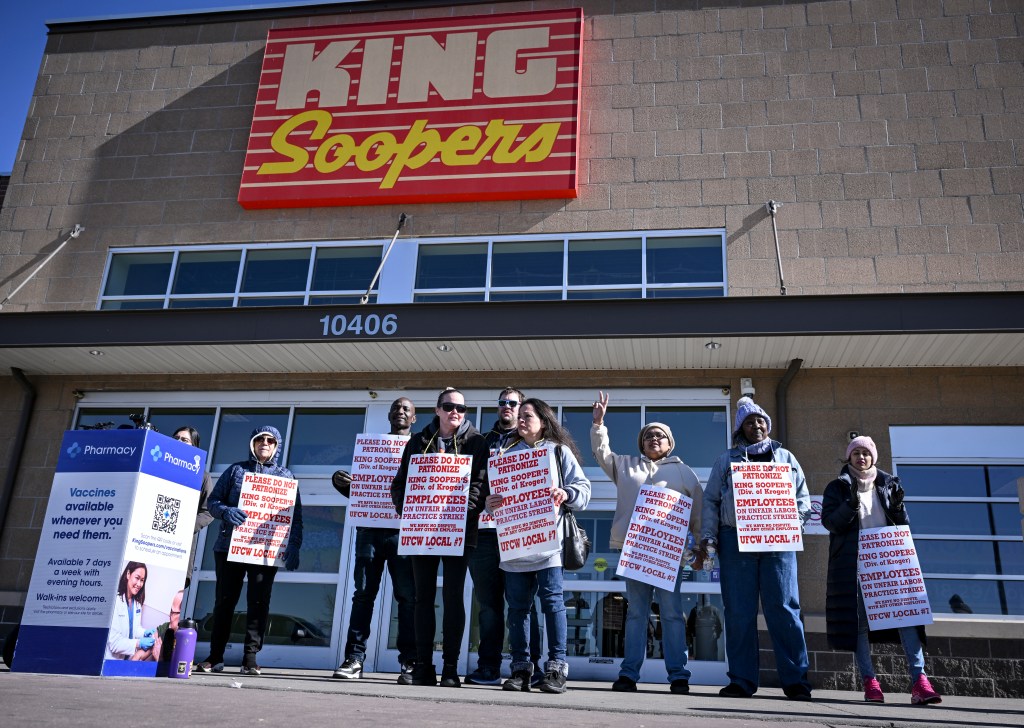The King Soopers strike last month moved like a shockwave through state employment counts, registering as a net loss of 8,900 jobs between January and February and pushing the state’s 12-month employment gain to an anemic 500 jobs, according to a monthly update from the Colorado Department of Labor and Employment.
The state’s unemployment rate, based on a separate household survey, held steady at 4.7%, leaving Colorado uncomfortably behind the 4.1% U.S. rate. Colorado tied for having the 45th worst unemployment rate alongside Alaska.
“The weak growth puts Colorado in a precarious position. The state budget has a $1.2 billion shortfall that will present challenges and program cuts in upcoming years. There are a lot of good things happening in the Colorado economy; however, Colorado is not in a position of strength to deal with federal policies that negatively impact Colorado employment,” said Broomfield economist Gary Horvath in emailed comments.
Employment counts are based on the week that includes the 12th of the month. About 10,000 King Soopers workers were on strike that week and returned to their jobs on Feb. 18, just after the deadline. The labor action contributed to a drop of 11,000 jobs in the trade, transportation and utilities sector between January and February, with an emphasis on retail trade.
The March numbers should look better with those workers back on the payroll. But there are other signs of softening. January payroll counts were initially estimated to be up 3,900 from December, a respectable monthly increase. But as more employers reported their headcounts to the state unemployment insurance system, the gain ended up closer to 500.
Five hundred is also the net number of jobs Colorado employers were estimated to have added over the past 12 months through mid-February. That rounds down to a 0% annual growth rate, which is behind the 1.2% growth rate for the U.S.


